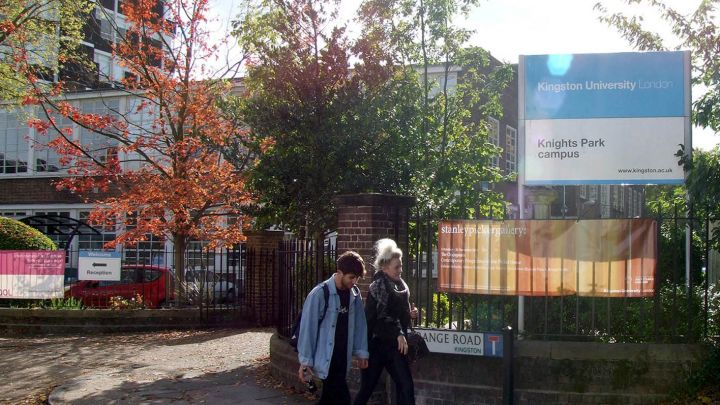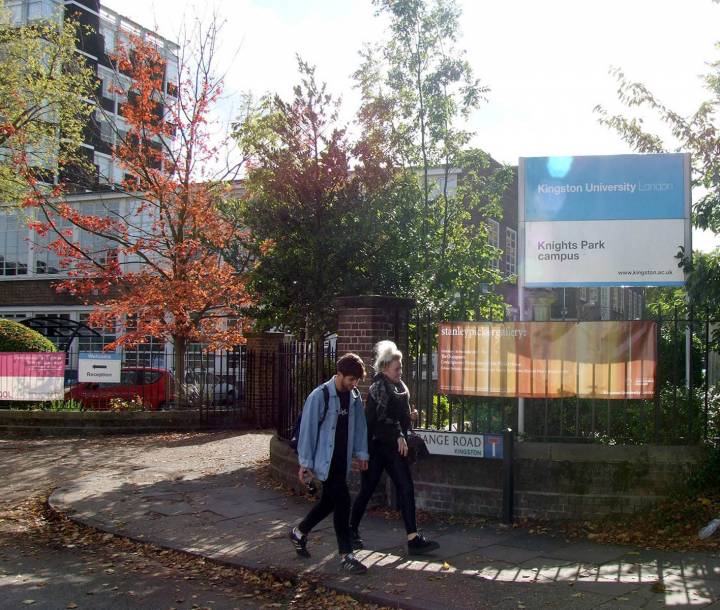A question of HE Symposium - Call for Papers

This event has taken place
View all upcoming events at Kingston University.
-
Price:
free
To attend: booking will be available soon, please check back

Event will take place on 24 September 2021 - Kingston School of Art, Kingston University
Call for Papers deadline 30 July 2021
This has not been an easy year for HE, demanding a steep learning curve. As in times of any crisis there was much talk about the need to be resilient and rise to the challenges of the situation. Universities have had to adjust; academics tasked with managing the steep learning curve overnight. Suddenly, the until then much debated and discussed online learning became the only possible way to provide higher education provision.
At the time of writing this call for papers, the end of the crisis is slowly becoming visible, and not only life as we remember it, but also new ways of living and working are also becoming imaginable. We would like to mark the start of the new academic year with a symposium that attempts to first celebrate surviving a year of online delivery, and to explore together how this experience may have permanently changed the meaning of higher education. We begin by returning to the question asked by Collini (2012) and many others, but this time with the hindsight of the pandemic: what should universities be for?
Such a question inevitably invites research from Critical University Studies, and already there is a growing list of publications that examine how the pandemic experience has sped up the neoliberal transformation of higher education. While we welcome similar responses that are specific to colleagues' teaching experience over the past 12 months, we are particularly interested in exploring the experience of blended learning itself: how this may have reshaped the learning experience for students, accelerated the already-rapid changes in students' skills, needs, and expectations of HE, and will continue to inform the changes in higher education institutions. More specifically, we would like to explore agile responses to the use of digital information technologies such as VLEs, apps and other online communication platforms in the past 12 months and how these transformed experience for students and staff.
Academic literature on VLEs and on technology assisted learning and teaching have until now largely focused on pedagogical values of digital technologies and how these aid student learning in innovative ways, such as blended teaching methods, flipped classroom approaches and the promotion of equitable learning environments. These have resulted in the mostly taken for granted assumptions about how technology enhances learning, interpreting digital learning as "self-evident" and offering an "all-encompassing solution to the more profound problems" of current institutionalised education (Teräs et. al. 2020: 865). Such assumptions isolate technology from its social context and creating a ‘reductive discourse rendering the deeper questions around technology in education resistant to the discussion' (Bayne 2015: 8). Since technology is socially contested and socially shaped (Selwyn 2010: 66), we should critically interrogate its use in HE, address its pedagogic foundations and how it plays a key role in shaping student and teacher subjectivities (Casteneda & Selwyn 2018). This may have been impossible during the crisis, when technology was our only means to communicate with students. Now might be the right time to critically reflect on the experience when examining how it complements and contradicts in different ways our ideas about what universities should be for.
We therefore want to discuss these issues in our Symposium in September 2021, especially inviting colleagues who work in disciplines related to Arts and Humanities and Creative Industries, which have been facing serious challenges due to shifting context in HE long before the pandemic started, and have felt the pressure to be extra resilient in their urgent adaptation to online teaching. Some of the questions we would like to explore include -but are not limited to- the following:
• How can digital technology help to promote creativity, criticalness, reflective learning and political awareness in our graduates?
• What are the possible tensions between technology and creativity in Arts and Humanities?
• Can technology help us incorporate critical pedagogies?
• What are the ways in which technology can be used to promote more a more inclusive learning environment?
• What is the impact of learning technologies we use on learning communities and relationships between students and between students and staff?
• What might be the long-term impact of our increased incorporation of technology in HE?
• When different technologies are employed in HE institutions, what are the key concerns that shape the decision-making process?
• How can students contribute to the ways in which technology is used in HE?
• What are the different ways in which technology is (or should be) utilised for different disciplines?
• What might a post-digital University look like?
We welcome traditional papers to responding to the themes of the cfp (15 mins), especially those with case studies and examples from the past year's experience, but we would also welcome responses reflecting practice-based research, such as videos, digital walls, interactive posters, performances or podcasts. If you are interested, please send 500 word abstracts to he_symposium@kingston.ac.uk by 30 July 2021 deadline.
Referenced sources:
Bayne, S. (2015) ‘What's the matter with ‘Technology Enhanced Learning'?' Learning, Media and Technology 40(1), 5-20
Castaneda, L. & Selwyn, N. (2018) ‘More than tools? Making sense of the ongoing digitizations of higher education' International Journal of Technology in Higher Education, 15:22
Collini, S. (2012) What are Universities For?, London: Penguin
Selwyn, N. (2010) ‘Looking Beyond Learning: Notes towards the critical study of educational technology' Journal of Computer Assisted Learning, 26(1), 65-73
Teräs, M., Suoranta, J., Teräs, H. & Curcher, M. (2020) ‘Post-Covid-19 Education and Education Technology ‘Solutionism': a Seller's Market' Postdigital Science and Education, 2:863-878
For further information about this event:
Contact: Aybige Yilmaz and Clare Conway
Email: he_symposium@kingston.ac.uk
